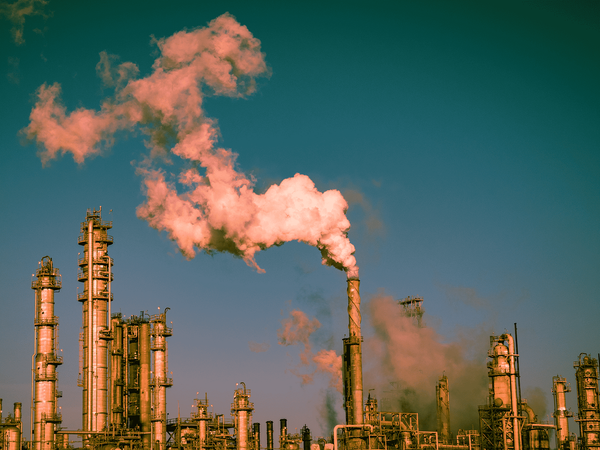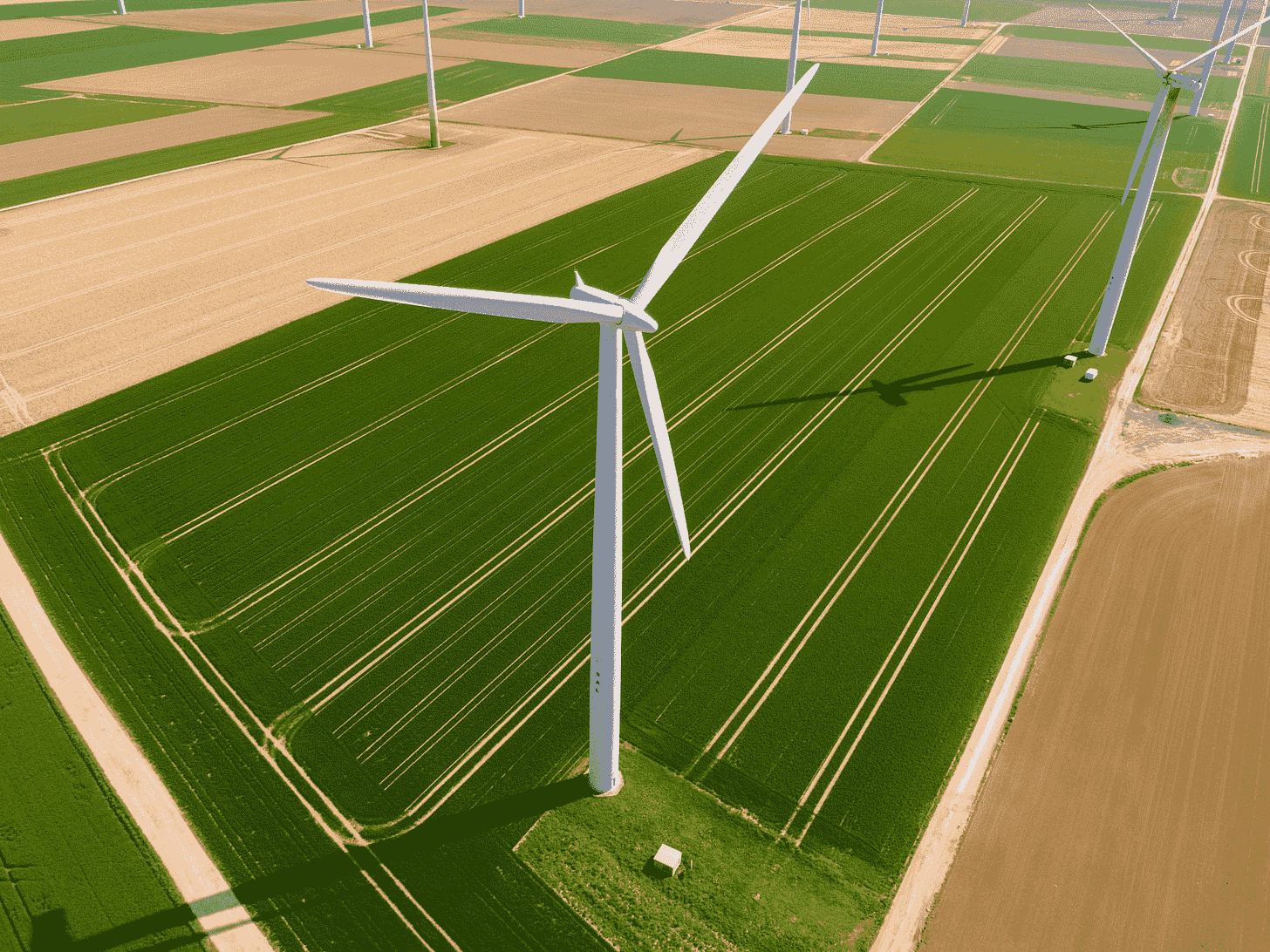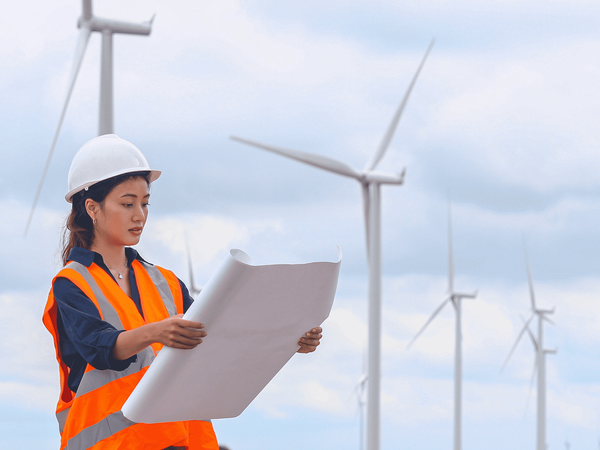France's climate change target criticized by NGOs

France’s current national law targets to decrease greenhouse gas emissions by 40% by 2030 compared to 1990 levels. However, more than 100 NGOs have criticized the French government for setting the bar too low.
Since the industrial revolution began, the European Union (EU) has been responsible for roughly 18% of worldwide CO2 emissions. Therefore, in 2020, the European Commission proposed to cut greenhouse gas (GHG) emissions by at least 55% until 2030, which brings Europe on a responsible path to becoming climate neutral by 2050. Being one of the top four CO2 emitting countries of the EU, France bears a huge responsibility to stay within the national target.
France increased its dependency on low-emission nuclear energy and hydroelectric power in the last decade. Additionally, made homes more energy-efficient and has a plan to close all remaining two coal plants by end of 2022. However, even with these actions, France has exceeded its allocated carbon budget in the past several years and is not believed to be in the progress of meeting the emission reduction targets.
Greenhouse gas emissions 1990-2019
The French government’s broad strategies for their long-term 2050 carbon neutrality goal include cutting in half energy consumption through enhanced energy efficiency, reducing non-energy emissions from farming by 38% and industry by 60%, compared to 2015 levels. The plan also consists of increasing carbon sinks around the country.
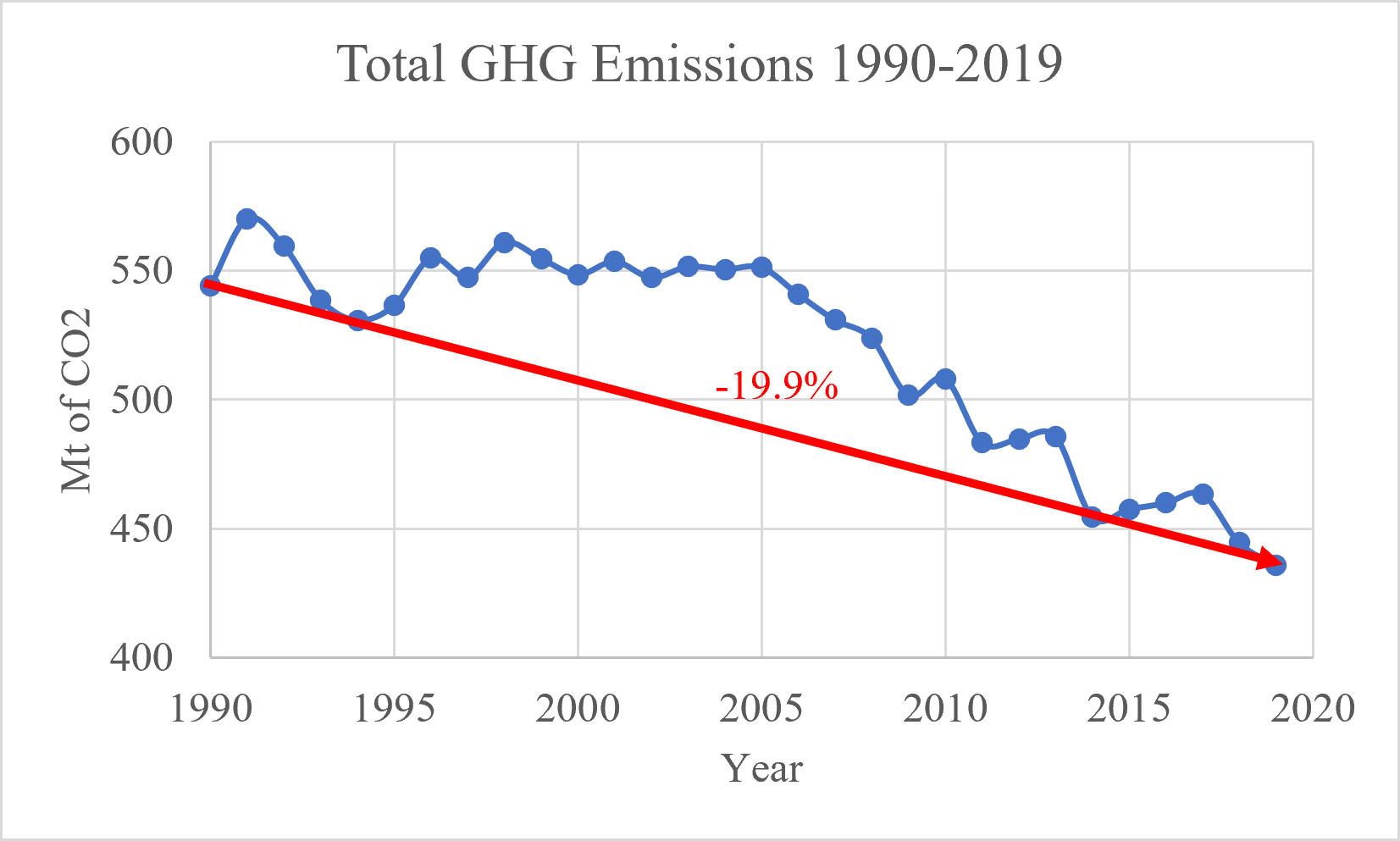
Figure 1 represents France’s greenhouse gas emissions from 1990 to 2019. According to IEA, between 1990 and 2018, France saw a 16.9% reduction in greenhouse gas emissions and the country managed to decrease its emission by 19.9% in 2019, compared to 1990 levels.
The emissions from transport declined by almost 20 Mt CO2 in 2020, compared to 2019 because of the two nationwide lockdowns due to Covid-19. Before the pandemic, in 2019, annual emissions in France were already falling by 23% (compared to that of 2005). Covid-19 generated about a 12% drop in CO2 emissions in France in 2020, compared to 2019. France's power sector carbon emissions were expected to be 32 MtCO2e in 2021, down from a century-high of 52 MtCO2e in 2007.
The crucial question is, if everything remains as it is and the emission continues to go down at the current rate, would France meet the target of a 40% decrease by 2030 and net-zero by 2050?
Countdown: eight years till 2030
To meet the national target, France must cut down the same percentage of emissions (19.9%) by 2030 as it did from 1990 to 2019, as shown in Figure 2. Strategies that must be taken include, improving building energy efficiency, using renewable energies, reducing emissions from electricity generation, reducing fuel and gas consumption, removing coal power plants completely, and limiting the use of the most polluting energy plants.
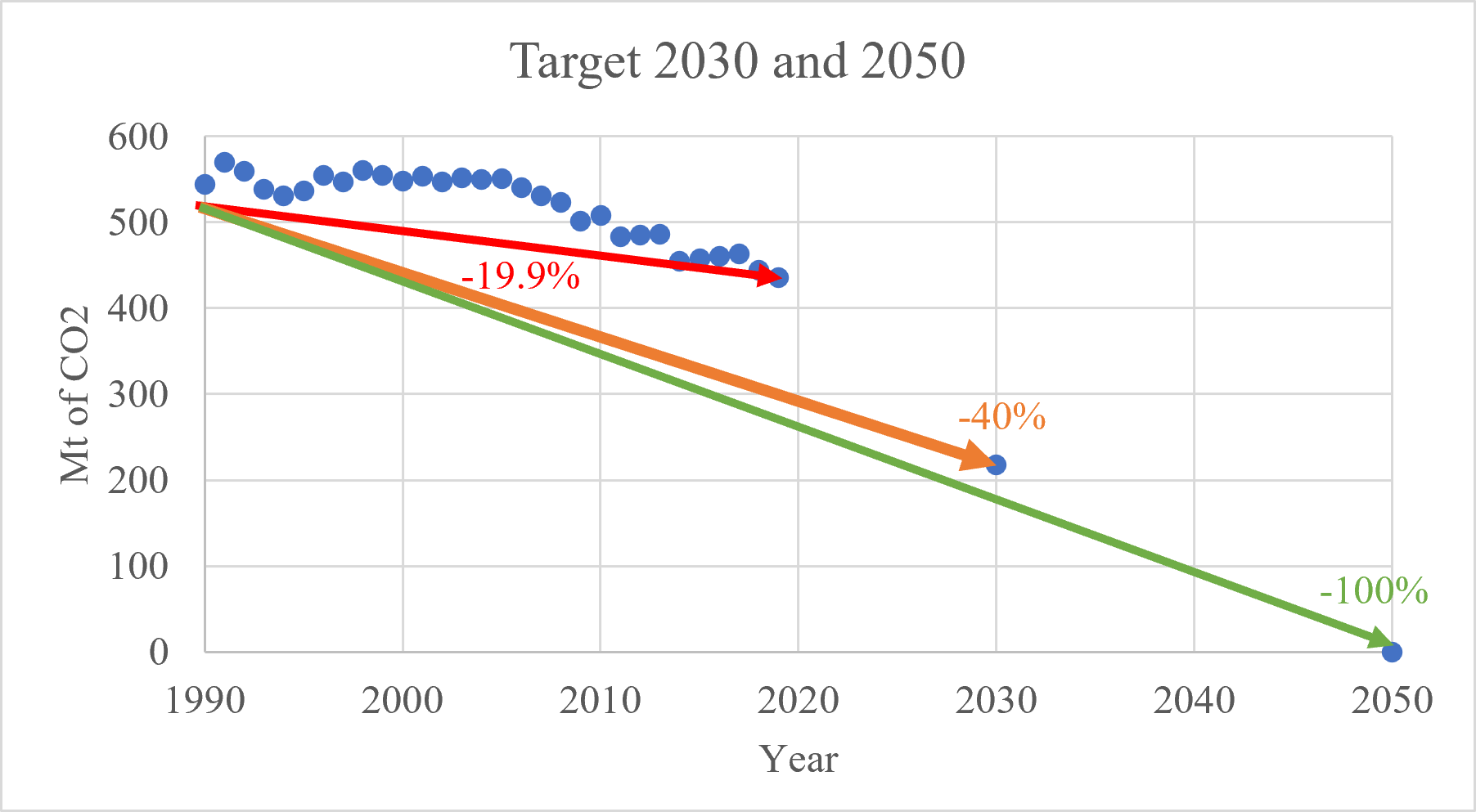
Although President Macron has increased the carbon price of petroleum products to €84/t in 2022, from €44 in 2018, the current slow progress in emission control makes the ability of France to meet its 40% reduction target questionable.
Energy share in the last 5 years (2015-2020)
The share of energy in the last five years is shown in Figure 3. The biggest energy contribution comes from nuclear power plants, which include 58 reactors spread among 20 sites and generate about 70% of France’s electricity. In 2020, renewable energy accounted for only about 19% of energy consumption in electricity, heating, and transport.
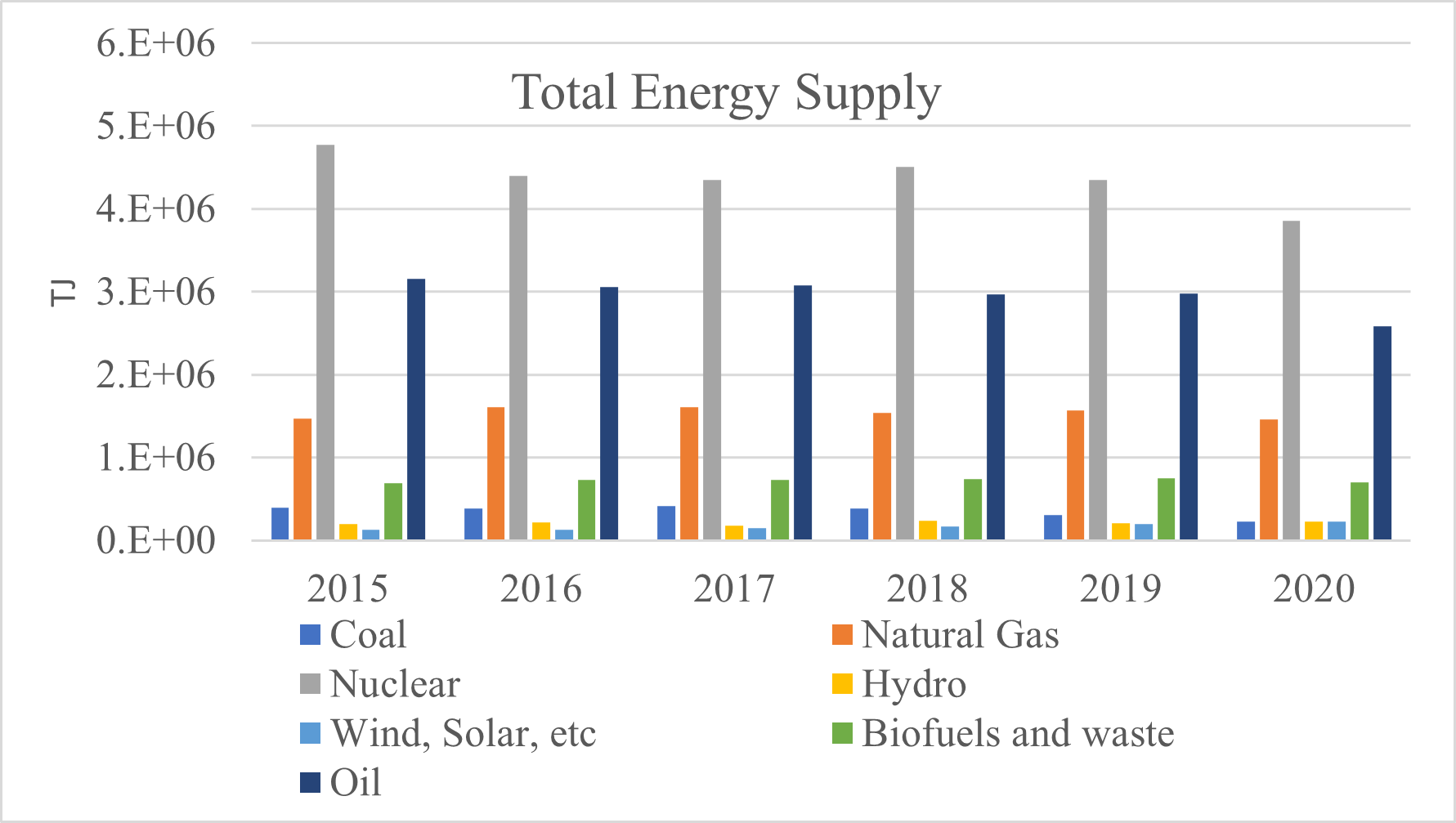
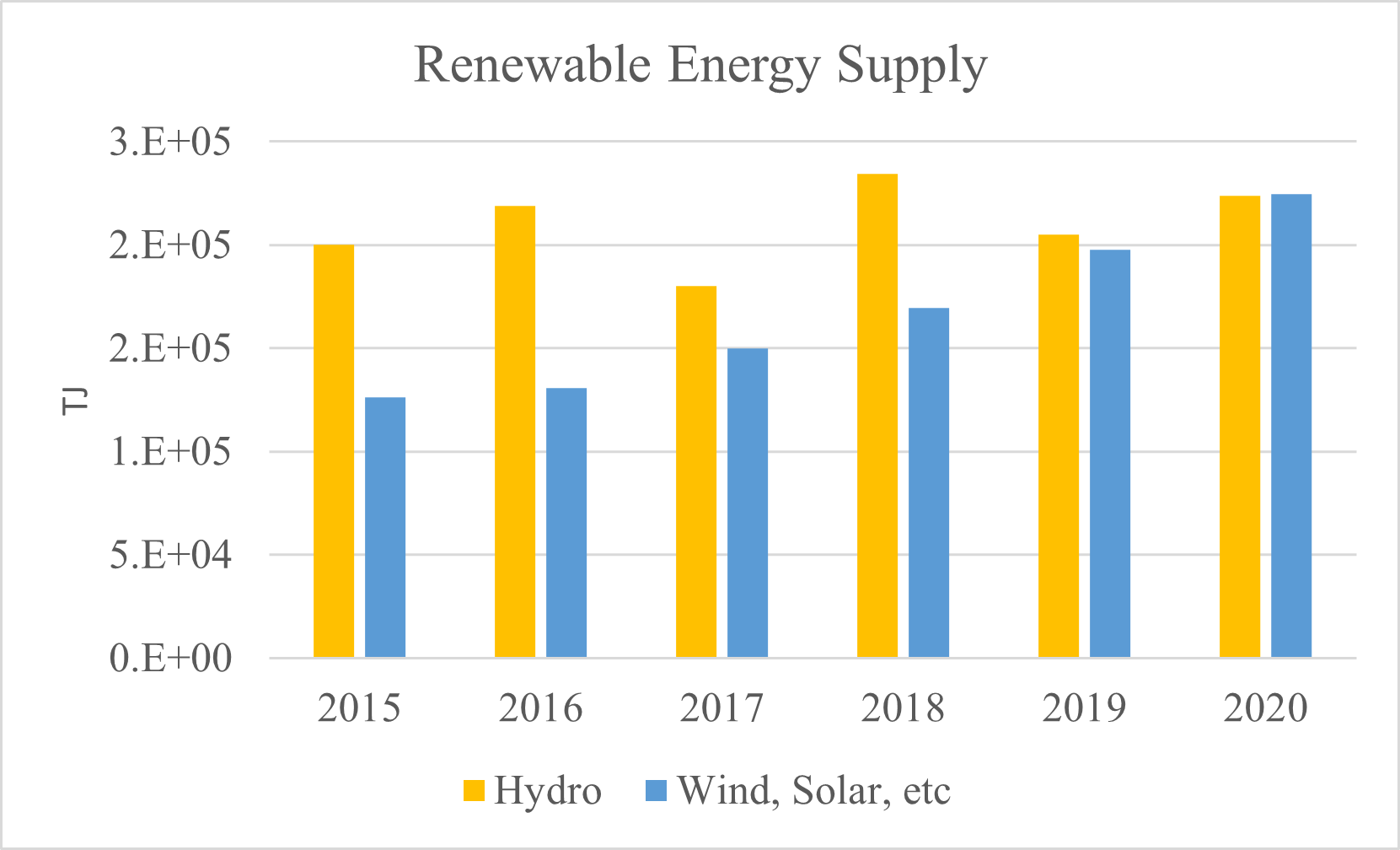
Looking closely at hydro and energy from wind, solar, etc. in Figure 4, although hydro energy experienced some turbulent time, wind, solar, etc. increased exponentially every year in the last five years. However, with just 19% of energy consumption coming from renewable energy, it is not enough to bring France on the needed path. The focus should be on bringing this number up, although the transition may not seem that simple.
While France seems to have strong laws and plans to reduce its emissions and meet its climate targets, the government must do more to ensure these targets are met, and the plans are executed on time.
